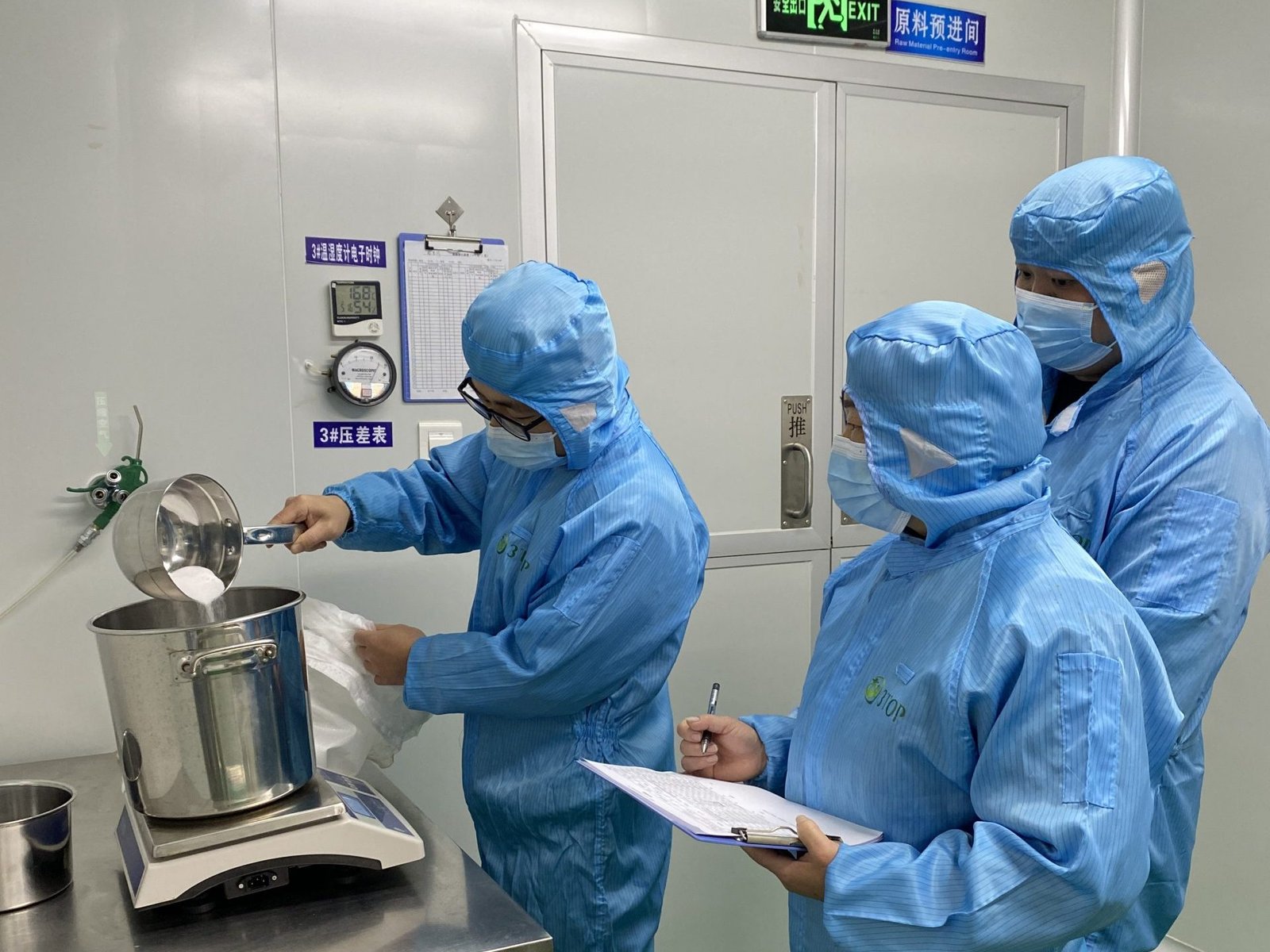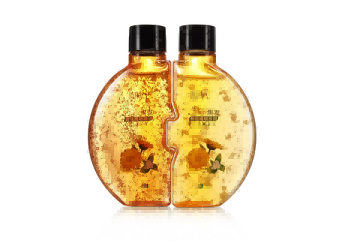The haircare market is packed with shampoos that all look and feel the same, and for business owners, standing out in this crowded space can be a serious challenge. Retailers and wholesalers are also facing shrinking margins as competitors keep replicating the same formulas. Meanwhile, consumers are demanding more vegan options, scalp-friendly pH levels, or even fun, trend-driven shampoo formulations.
For brands, the stakes are clear. Generic products might save you time upfront, but you risk losing customer trust in the long run. On the other hand, you can create customized shampoo formulas that customers love and keep coming back to. That’s where OEMs (Original Equipment Manufacturers) come in. Partnering with an OEM like 3TOP to build a shampoo business can get you access to scalable R&D, compliant production, and tailored branding, all without the headache of setting up your own manufacturing.

Whether you’re a startup with a passion for eco-friendly products or an established retailer looking to tap into the vegan movement, this guide will show you how to align your shampoo formulations with the latest trends, speed up production with pre-tested bases and modular designs, and boost your profit margins through bulk pricing and private label exclusivity. With the right OEM partner and by learning how to customize your private label shampoo formulas, you can turn your vision into a market-ready product that stands out. Let’s get started!
Why Customize Your Shampoo Formula?
The shampoo market is currently valued at $38.23 billion (in 2025) and is projected to reach $56.59 billion by 2032. Shampoo brands face pressures on both sides, from consumers demanding hyper-personalized solutions (microbiome-safe ingredients, refillable packaging, or trend-driven) to retailers grappling with commoditized products that erode margins. “Being different” is no longer optional but imperative to dominate niche markets, command premium pricing, and future-proof your brand. Customizing your shampoo formula through OEM partnerships can help you do that; here’s how:
1. Break Through Market Saturation
Generic shampoo formulation ingredients will quickly leave your brand invisible in the crowded retail and e-commerce spaces. A private label shampoo manufacturing process gives you access to exclusive formulations and patented blends that competitors can’t replicate. Adapting your custom shampoo bases to regional preferences, like lightweight formulas for humid Southeast Asian climates and rich blends for colder regions, gives you white-label agility. Also, private label companies earn higher profit margins than brand-name products.

2. Address Evolving Consumer Demands
72% of buyers pay more for products that align with their values. When you create your own shampoo brand with OEM, you can integrate dermatologist-tested ingredients (e.g., salicylic acid for scalp health, hyaluronic acid for hydration) to solve your buyer’s clinical needs. Meeting customer demands and compliance standards also helps certify vegan, halal, or EWG-verified formulas and reduce product returns.
3. Capitalize on Trends Without R&D Overhead
Production time and costs can be slashed to a minimum with the pre-tested bases that OEMs provide. And if you plan to launch seasonal lines, they are your go-to. Trends are ever-changing; when you can relate to them, go for it. It could be by swapping sulfates for gentler alternatives like cocoyl-glucoside or using plant-based proteins instead of animal-derived keratin. Sustainability at scale is also possible with the refillable packaging and biodegradable materials provided by your private label shampoo manufacturer.

4. Scale with Confidence
Private label custom shampoo production is for brands ready to grow. With 3TOP’s OEM services, you can start small and scale smart, mitigate risk by assessing pre-compliant bases (FDA, EU Cosmetics Regulation) to avoid $50K+ recall fines and focus on branding while the experts handle production.
How to Create Your Shampoo Formula with an OEM
The manufacturing of shampoo is complex, but it can be easier if you know what you want and let a shampoo OEM or ODM handle the how. While your manufacturing partner will handle the technical aspects, your role as a business owner is to define the vision, audience, and markers to make your product stand out. Here are your first steps to getting it right:
1. Define Your Brand & Audience
Your shampoo formula should reflect your brand’s identity and the needs of your target market. Start by asking: Who is your customer? Are you supplying salons that need professional-grade formulas for color-treated hair? Retailers catering to eco-friendly shoppers? Or distributors targeting Gen Z with playful, trend-driven packaging? Because the truth is your shampoo isn’t for everyone. It’s for someone.
To customize a private label shampoo, start with people and their problems. What problem does your shampoo solve? For salon owners, this might mean retaining the original hair color. For eco-retailers, it could be offering pre-certified vegan formulas that match their sustainability commitments. The private label shampoo manufacturing company you’re partnering with can help analyze gaps in your market. For instance, if the demand for a particular ingredient or packaging (pH-balanced for sensitive scalps or refillable packaging to reduce salon waste) grew within a specified period, you can use this data to position your formula as a solution, not just a product. Proper market research will help you choose purposeful ingredients when customizing your shampoo.
2. Select Ingredients Based on the Market Needs
Ingredient selection is key in customizing your shampoo formula, and this list can impact compliance, customer retention, and brand reputation. While generic formulas rely on cost-effective components such as sulfates and parabens, customization allows you to target specific consumer pain points and differentiate your brand. Here’s how to approach your shampoo label ingredient selection with a business-first mindset:
- Solve Problems: Identify the primary hair concerns of your target audience through market research or retailer feedback. For instance, salons and professionals that wish to prioritize ingredients like hyaluronic acid (to lock in moisture for chemically treated hair) and keratin (to reduce breakage from heat styling). It could also be retailers that want ethically sourced shea butter and aloe vera shampoos that align with sustainability certifications like Ecocert or COSMOS. Or businesses in the scalp health markets looking to integrate tea tree oil(antibacterial) or salicylic acid (exfoliating) components in shampoos to combat dandruff.
- Avoid Compliance-Driven Formulations: Transparency about your ingredient list can safeguard your business. Avoiding potential irritantslike sulfates (SLS/SLES) and parabens, which are linked to scalp irritation and hormone disruption, can reduce customer complaints. If you work with 3TOP, you can source pre-compliant ingredient bases that are vegan and gluten-free to streamline production and avoid reformulation costs.
- Use the Ingredients for Premium Positioning: The ingredients in your custom shampoo formula can turn into marketing assets. For caffeine, which has been clinically shown to stimulate hair growth, position the product as a “professional-grade” additive for salons. Then, for argan oil, highlight its cold-pressed extraction and mention that it is a luxury shampoo for boutiques.
- Validate with Testing & Data: Never assume your ingredients have 100% compatibility with everyone. A reputable OEM like 3TOP will provide stability testing to ensure that formulas don’t separate or degrade, perform patch tests to verify hypoallergenic claims, and build retailer trust through clinical backing from dermatologist-tested certifications.
3. Partner with the Right OEM
Partnering with a good OEM service makes production much more effortless. They can be a trusty teammate who understands your vision and budget. While many manufacturers offer basic formulation services in the shampoo industry, leading businesses choose 3TOP as their OEM partners because they empower companies to focus on growth while mitigating risks that sink less-prepared competitors.
When choosing an OEM, certifications matter, and you shouldn’t compromise. If your shampoo brand claims to be cruelty-free, your OEM should be certified. If you’re taking the organic ingredient route, you need USDA stamps. Selling in the U.S.? FDA compliance isn’t optional. Don’t just take their word for it; ask for paperwork. A legit partner will proudly share certifications.
If you’re just starting out, look for OEMs with true partnerships and R&D support. Instead of the stock formulas most manufacturers provide, 3TOP’s R&D team works with brands to refine textures, scents, and functionality. This way, you can make necessary changes and ensure your product aligns with market feedback before mass production. Also, a good OEM will allow you to test-run the shampoo ingredients list before the entire production process.
3TOP is the perfect private label shampoo manufacturing company for business owners and salon professionals. They just get it! From the transparent certifications, compliant ingredients, and R&D to the speed of delivery and samples. Plus, they will work with you to formulate personalized shampoo pre-approved for EU, ASEAN, and North American markets, eliminating regional barriers. Matter of fact, they’ll tweak your formula until it’s perfect, not just “good enough.”
4. Design Packaging for Compliance & Cost Efficiency
Beyond aesthetics, the best shampoo formulations come in compliant and cost-efficient packaging. While eye-catching designs matter, good OEM partners deliver functional solutions that protect margins and mitigate risk. Businesses must adhere to strict packaging regulations to avoid recalls or fines exceeding $50K per incident, which often arise due to non-compliance with global market demands. Partner with OEMs like 3TOP to source packaging materials solutions certified by the global mainstream market, such as:
- FDA food-grade plastics that are safe for direct product contact and don’t leach chemicals like phthalates.
- EU REACH-compliant glass that is recyclable and free from heavy metals (e.g., lead, cadmium) that are restricted in Europe.
- Biodegradable tubes that can help future-proof your brand.
Custom packaging often increases inventory costs through excessive SKUs and minimum order quantities. 3TOP’s modular design addresses this and reduces SKUs by 30%. Their thinner, aerated designs also cut shipping costs for Amazon FBA sellers and get discounted prices on bulk productions.
Sustainability is no longer optional; it’s expected and economically strategic. Refill stations reduce packaging costs and boost customer retention. Ink-free designs, like laser-etched labeling, eliminate toxic dye costs and comply with the EU’s Ecolabel standards. Overall, an OEM partnership with 3TOP to start a shampoo production line reduces upfront investment while securing long-term market access.
Key Tips for Customizing Your Shampoo

Your shampoo making formula is already on its way to success, so here are some ways to ensure your formula aligns with commercial viability and client expectations:
- Test with Strategic Markets First: Before bulk production, start small trial batches with trusted distributors, salon partners, or regional retailers. This reduces financial risk and provides actionable feedback for the business.
- Prioritize Scalp-Safe pH levels: A pH range of 5 – 7 is critical for scalp health and compliance with dermatological standards. Partner with OEMs that provide pH testing reports to avoid customer complaints or recalls.
- Match the Scents to your Brand Identity: Work with your manufacturer to develop fragrances that resonate across your product line (e.g., herbal notes and woody scents for “clean beauty” brands and unscented options for clinical markets). Avoid over-customization, as stock scents are cost-effective and help brands reduce formulation expenses while maintaining quality.
Vet Manufacturers for Scalability: Ensure your OEM and ODM manufacturers comply with ISO 22716, FDA, or EU Cosmetics Regulations. If necessary, obtain samples to refine texture, lather, and stability.
Common Mistakes to Avoid
- Skipping pre-launch testing: Allergic reactions or formulation instability can ruin your brand’s reputation. Conduct patch tests with a few users and stability tests (heat/cold cycles) to ensure shelf-life claims.
- Overcomplicating formulas: A shampoo base preparation with excess ingredients increases costs unnecessarily and raises compatibility risks. For consistency and margin control, limit formulas to 5 to 7 active ingredients (e.g., hyaluronic acid + argan oil for hydration).
- Ignoring OEM Expertise: Don’t self-manage pH balancing or preservative ratios. Leverage your OEM’s R&D team to handle technical specs while you focus on branding and distribution.
Conclusion
Creating a custom shampoo formula with an OEM can be the strategic move your brand needs. You’ll solve customers’ hair struggles, differentiate your brand, capture niche markets, and drive long-term profitability. By partnering with a trusted manufacturer like 3TOP, you can access scalable solutions that balance innovation with cost efficiency, from compliant formulations to eco-friendly packaging.
Whether you’re a salon owner expanding your product line, a retailer targeting eco-conscious consumers, or a distributor entering the Gen Z market, 3TOP’s expertise ensures your shampoo stands out without compromising quality or compliance. With low MOQs, rigorous testing, and trend-driven R&D, they transform customization from a complex process into a competitive advantage.
Ready to launch your private label shampoo production line? Click here to get started and turn your vision into a market-ready reality.
FAQs
How much does it cost to create a custom shampoo?
The cost of your custom shampoo formula for hair growth depends on the size of your order and the ingredients used. Bulk orders qualify for volume discounts, and 3TOP offers flexible MOQs ideal for market testing or niche launches.
How long does it take to launch?
The timing for production and packaging isn’t one-size-fits-all. Feel free to contact us so we can walk you through the process. Need it faster? We also offer rush options – just ask.
What certifications does 3TOP hold?
We’re certified by the FDA (China), EU Cosmetics Regulation, ISO 9001, ISO 14001, ISO 22716, GMP, FDA, and Walmart, ensuring global compliance and quality.
Can formulas be tailored for specific markets (e.g., vegan, hypoallergenic)?
Yes. We provide hypoallergenic bases (fragrance-free, oat extract) and vegan formulations (EWG-verified, COSMOS).
How does 3TOP ensure product quality?
We maintain product quality by providing pre-production testing, batch consistency checks, and post-production audits.




-600x400-c.jpg)


